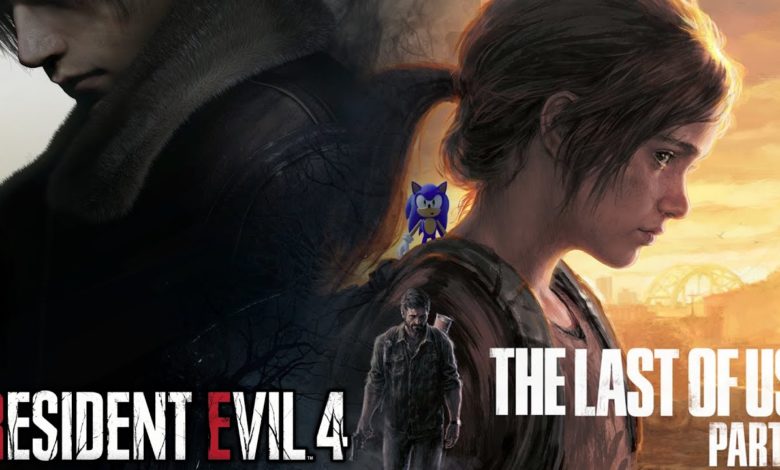Are video game re-releases getting out of hand?
Remasters, remakes and ports, oh my!

During last week’s Summer Game Fest, Naughty Dog announced it will remake The Last of Us. However, even before Naughty Dog made the official announcement, Sony themselves accidentally leaked the news. And that unofficial announcement already left some players scratching their heads.
The Last of Us first launched towards the end of PlayStation 3’s life cycle in 2013. Naturally, it made sense that a year later, players would receive a massively improved version for PlayStation 4. However, even eight years, the PS4 version (which you can also play on PS5) still holds up remarkably well. So, why remake the game so soon?
On the other hand, there are video game remakes that do make sense. One group of examples that jumps out is the series of Resident Evil remakes that Capcom began with RE2. Now, the publisher has its eyes set on rejuvenating Resident Evil 4 with a reimagined story and modern bells and whistles.
However, unlike The Last of Us, which is young enough to still feel fresh, these older Resident Evil games do feature outdated graphics and mechanics that warrant an improvement. That isn’t to diminish the original games’ historical and influential standing, since the originals hold up as pivotal classics for their time. Instead, these reimaged games freshen up classics that some younger audiences may not be as familiar with.
However, these two recent examples barely scratch the surface of the video game re-release phenomenon that continues to overtake the industry. It feels like every year, we see more and more remakes, remasters and ports. Yet, original ideas (and even proper sequels) feel few and far between. So, I ask, are video game re-releases getting out of hand?
Bringing arcade favorites to your home console
Video game re-releases are nothing new. Since gaming’s Golden Age, companies ported arcade titles to home consoles. From the late ’70s to mid ’90s, arcades dominated mainstream video game culture.
As a result, titles ranging from Pac-Man to Mortal Kombat originated at the arcade before finding their way into players’ living rooms. The idea made sense. People fell in love with certain games while at the arcade, and bringing them to home consoles made playing these titles more convenient.
Although many of these console ports fell short to the (at the time) more powerful hardware of arcade machines, players ate them up anyway. Some of the most fondly remembered games from consoles like Atari 2600, NES and SEGA Genesis began in an arcade. However, as home consoles improved their hardware to a point that eventually surpassed arcade systems, things began to change.
More powerful consoles take over the arcade
In 1994, PlayStation first found its way into living rooms across Japan. A year later, Sony’s debut console would make its mark around the world. On the other side of the fence, Nintendo would then mark its territory in the changing 3D-gaming. landscape with the N64 in 1996.
By introducing the masses to 3D gaming, each of these consoles revolutionized the video game industry and set the stage for its future. For the first time, home consoles rivaled arcade hardware as the more powerful means to play. Overall, this turning point saw a flood of console-original games and significantly less arcade ports.
That isn’t to say we didn’t get our share of ports. Tekken, Ridge Racer and Parodius all began in arcades before finding another home on PlayStation. However, just watch the comparison of Mortal Kombat 3 on arcade versus PlayStation to see how ports changed over time.
With the Pac-Man comparison from earlier, the console port shows a noticeable downgrade from the original. Whereas now, the differences between arcade and home console are harder to find. For this reason, consoles took over the industry, leading to many fresh ideas beginning on home hardware. Even the video game re-releases that launched into the 3D generations of gaming didn’t oversaturate the market of original games.
From franchises like Resident Evil making their debut to established series like Super Mario redefining its genre, 3D hardware brought no shortage of fresh ideas. Continuing into the next generation with the GameCube, PS2 and Xbox, the industry saw new ideas come into fruition and long-standing franchises evolve with fresh concepts. In today’s age, however, many of the games that once revolutionized the video game industry are largely contributing to its stagnation.
Did online DLC kill innovation?
Just as PlayStation and Nintendo 64 revolutionized the gaming industry by introducing 3D gameplay, Xbox 360 and PlayStation 3 brought in a new age of online functionality. Alongside online multiplayer, this also began the rise of digital games and downloadable content. All of these innovations led to game developers and publishers finding new ways to monetize games outside of initial sales.
For the first time ever, game developers didn’t need to worry about making sure all the planned content for a new title came at launch. Instead, they would begin including add-ons to existing games that required players to spend even more money. As the trend of DLC rose through the years, its prevalence grew further to downright insulting amounts.
Although mobile games were more notorious for this, even console games are plagued with microtransactions. Oftentimes, these microtransactions are for cosmetic items that offer players new skins and textures, but don’t alter gameplay. However, some “loot box” systems in games require players to spend real money in a pay-to-win system that gives larger spenders a greater advantage.
Grand Theft Auto pulls a real-life heist
But what do microtransactions have to do with re-releases and a lack of originality in modern gaming? I’m glad you asked. One of the most infamous examples of a company that once felt revolutionary to gaming but now focuses on regurgitated content for cheap cash is Rockstar Games.
From the early Grand Theft Auto games that shaped the open-world formula to cult-classics like Bully and Manhunt, Rockstar was one of the most respected and innovative AAA developers in the world. However, in 2013, the company stumbled upon a gold mine that saw it too succumb to creativity-killing greed. Grand Theft Auto V, at launch, was a huge step for the series by featuring three playable characters with interwoven stories.
However, its accompanying GTA Online instead proved to be the game’s real money-maker. Since launching, Rockstar continuously kept the online mode updated with frequent new content. Live updates kept the game mode from stagnating and resulted in an unprecedented longevity for any GTA game.

Because of in-game currency requiring players to grind for countless hours, and the prevalence of toxic players and griefers making the grind impossible at times, the ever-ominous Shark Cards become all the more appealing. These Shark Cards offer players an easy way out to purchase high-priced items as they come in through updates. From wild vehicles to overpowered weaponry, GTA Online prioritizes pay-to-win mechanics to help Rockstar bring in steady revenue.
For that reason, many attribute the absence of a GTA 6 solely to GTA V‘s never-ending cycle of microtransactions. I’ll give credit where credit’s due, however. Rockstar did bring us one of the best modern games of all time in 2018 with Red Dead Redemption 2. However, they quickly showed their true colors by almost entirely abandoning Red Dead Online in favor of updating GTA V.
Bring in the re-releases!
So, apart from Red Dead Redemption 2, what else has Rockstar done since GTA V? Well, last year, they re-released the PS2-era GTA games in a collection that feels more like a downgrade to the originals due to its glitch-ridden gameplay. Oh, and they announced that Grand Theft Auto V would return, yet again, for current-gen systems. But it’s okay because at least Rockstar announced this year that they STARTED working on a new GTA game.
However, if Rockstar was the only offender for the re-release trend, there would be no point to this article. No, the problem goes far deeper. I mean how many times do we really need to see Skyrim ports either?
Given the sheer amount of remakes, remasters and ports that flood the video game market every year, it would be futile to go into as much depth on the issue as I did for GTA V. That said, here is a list of some of the video game re-releases (including collections) Mega Visions covered in just this past week.
- Capcom Arcade: 2nd Stadium (collection of ports)
- The Last of Us Part I (remake)
- Resident Evil: 2, 3 and 7 (two remasters of remakes and another remaster)
- The House of the Dead (remake)
- Sonic Origins (collection of remasters/ports)
- Resident Evil 4 (remake)
The farther I go back, the larger this list would grow. But I think you get the point. We live in a day and age where fresh ideas don’t bring in as much money as re-releasing old games, especially if people will pay.
Cashing in on nostalgia
Aside from the cost-effective nature of remastering, remaking and porting games, there’s also far less risk by cashing in on nostalgia. A new idea could flop; whereas, long-standing game franchises have established audiences. These audiences are likely to buy a re-release or remake, simply because they have a history with the game at hand.
However, while a good portion of these titles become soulless, lifeless shells of the original games, others are warranted. For example, there is merit on reimagining old, era-defining classics such as Doom, Resident Evil 2 or Tomb Raider for modern hardware. When the quality showcases a noticeable difference and improvement, I see no reason not to re-release it.

The issue lies in re-releases that delay future entries in a series or new concepts in general. When Grand Theft Auto V and Skyrim come to every console generation, something is truly missing in the creativity department. Another problem comes when a game that’s totally fine as it sits like The Last of Us gets a remake prioritized over creating a wholly original game.
But what do you think? should we be concerned that re-releases of old games will completely take over from original ideas? Or do they provide a greater benefit by allowing players to relive their favorite classics with modern sensibilities? Or is there a middle-ground where both schools of thought can coexist? As always, share your thoughts with us down below!

